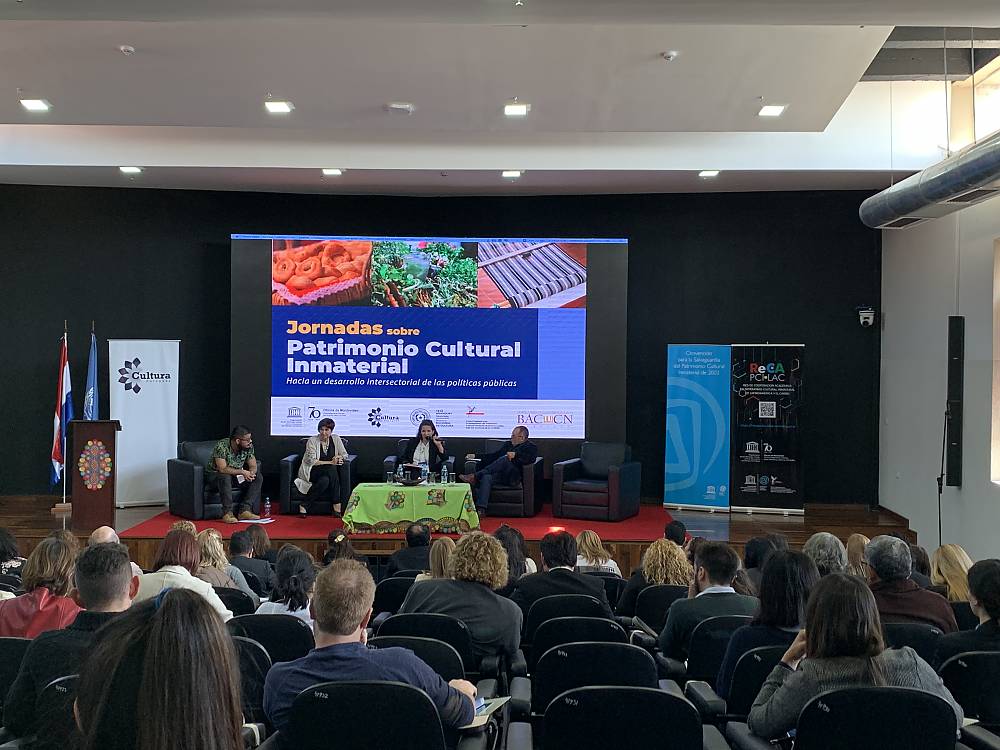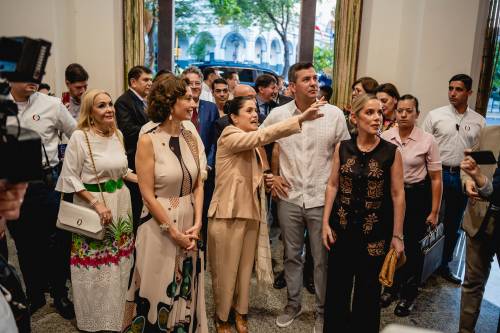The Conference on Intangible Cultural Heritage: Towards an intersectoral development of public policies, gathering August 2019 in Asunción, Paraguay, highlighted the intersectoral dimensions of intangible cultural heritage and the role of training in contributing to the strengthening of public policies.
More than twenty experts from Latin America discussed about the possibilities of integrating intangible cultural heritage in the sectors of agriculture, education, tourism, creative industries and about the role of youth in safeguarding intangible cultural heritage. The discussions were moderated by members of the Network of Academic Cooperation in Intangible Cultural Heritage of Latin America and the Caribbean (ReCA PCI LAC), and stressed the importance of the role of academic institutions in providing training for cultural institutions and decision-makers. At the same time, three capacity-building workshops on safeguarding plans, community participation and elaboration of inventories were held with representatives from the National Secretariat of Culture of Paraguay and from other institutions at the municipal and regional levels.
The Conference was organized by UNESCO Montevideo, the National Secretariat of Culture of Paraguay, the Category 2 centre under the auspices of UNESCO CRESPIAL (Regional Center for the Safeguarding of the Intangible Cultural Heritage of Latin America), and with the support of ReCA PCI LAC.
The network ReCA PCI LAC was launched in 2017 by UNESCO Office in Montevideo with the support of CRESPIAL to foster capacity-building in intangible cultural heritage, in line with UNESCO 2003 Convention for the Safeguarding of the Intangible Cultural Heritage. Currently, the network brings together more than 30 academic and scientific institutions from 9 countries from Latin America with the aim of promoting joint projects of interdisciplinary cooperation at the level of higher education.
More information: “Conference on Intangible Cultural Heritage: Towards an intersectoral development of public policies”
Event:
-
Conference on Intangible Cultural Heritage in Paraguay (19 August 2019 – 20 August 2019)




